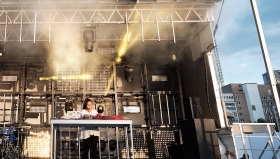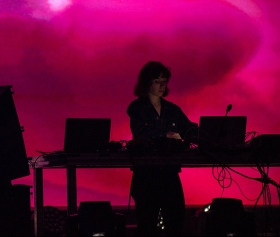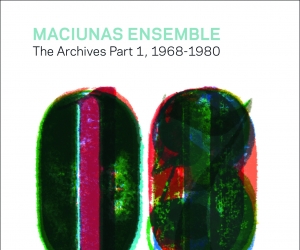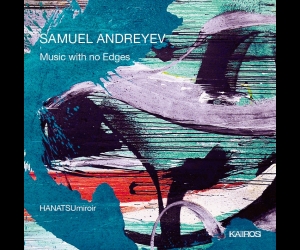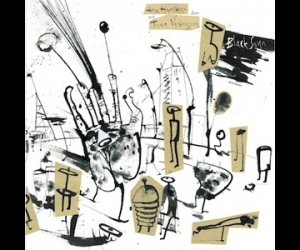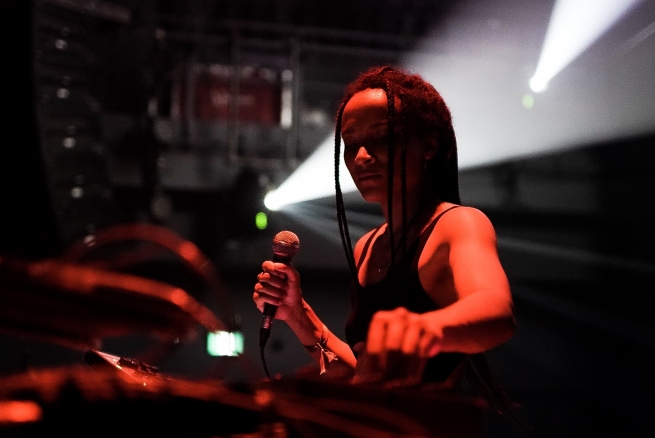
MUTEK Montreal has long served as the high-water mark around the world for a festival presenting leading artists in the fields of electronic music and digital art. The twentieth edition of the five-day festival confirmed MUTEK’s enduring relevance and commitment to promoting fresh ideas and perspectives within the audiovisual field. While electronic music is still often relegated to the empty warehouses and small clubs located in the margins of Montreal and other cities, MUTEK demands that this art form be taken as seriously as any other and programs performances in the city’s more esteemed venues.
The rumbling tones of Vancouver’s loscil (the electronic–ambient-music project of Scott Morgan) was felt to be right at home in Place des Arts’ Theatre Maisonneuve, as images of rolling grey cumulonimbi expanded behind him on a massive screen. The 1,400-seat downtown hall more customarily hosts jazz or classical music, so hearing New York-based Scottish musician Drew McDowall (Coil, Psychic TV) in that space felt subversive. He was joined onstage by visual artist Florence To, who manipulated threadlike waveforms onscreen as a backdrop to McDowall’s gritty noise, the two artists playing with ideas of perspective and space.
MUTEK’s Experience program, which included the kaleidoscopic tapestries of Toronto’s Obuxum [RIGHT]and the radioactive grooves of Montreal’s DJ FATi (aka RAMZi), was free to the public and presented at an outdoor stage at the same venue. By confronting both adoring crowds and chance passersby with hometown artists, the festival made a strong statement about the close relationship electronic music has with urban life.
A bevy of Montreal-based artists stole the show in this edition of MUTEK. Opening for U.K. warped-digital-dancehall artist Gaika, Ouri (Make It Rain Records) [TOP PHOTO] began her stunning set with a minimalist soundscape of Reichian pulses, proving she has a more dynamic range than revealed on her excellent R&B-focused EP We Share Our Blood. She moved expertly from abstract swaths of sound into more club-minded and beat-driven songs, as aurora-like lights cascaded around her.
Gene Tellem [LEFT] nabbed the the prime opening spot for Chicago-based mastermind of hyperventilating beats Jlin, rising to the occasion of the packed show at MTELUS with a hot set of energetic and playful deep house. With synth-pad washes lighting the way, Tellem incorporated the warmer, analog sounds of various woodwinds, guitar, and strings that guided her kinetic music toward the ethereal.
MUTEK focuses on the relationship between music and technology. With its own burgeoning video-game industry, Montreal is not immune to the displacement of venues and artists that comes with tech booms, as has happened in cities like San Francisco and Seattle. In this context, MUTEK shows how music and technology can work together in inclusive experiences that further creativity. While there were plenty of exhibitions that reflected that ethos, The Hexadome—on loan from the Institute for Sound and Music Berlin—stood out for its immersive but communal experience, and its 360-degree sound and visuals. Audience members were invited to sit on some black beanbag chairs, either between the six square screens that are arranged in a hexagon or in the middle of all of them, and let their eyes and ears wander as collaborations between musicians like Thom Yorke and Suzanne Ciani and visual artists like Tarik Barri and AudeRrose took full advantage of the unique setup.
Ouri photo (top) by Bruno Destombes / MUTEK 2019
Obuxum photo (middle) by ©Vivien Gaumand / MUTEK 2019
Gene Tellem photot (bottomo) by Bruno Destombes / MUTEK 2019
Michael Rancic is a freelance music journalist based in Toronto. Much of his print and online music writing focuses on emerging Canadian artists and on the ways in which public policy influences music scenes. He’s written for NOW Magazine, Bandcamp Daily, A.Side, Vice, Exclaim! and Spacing, among others.

